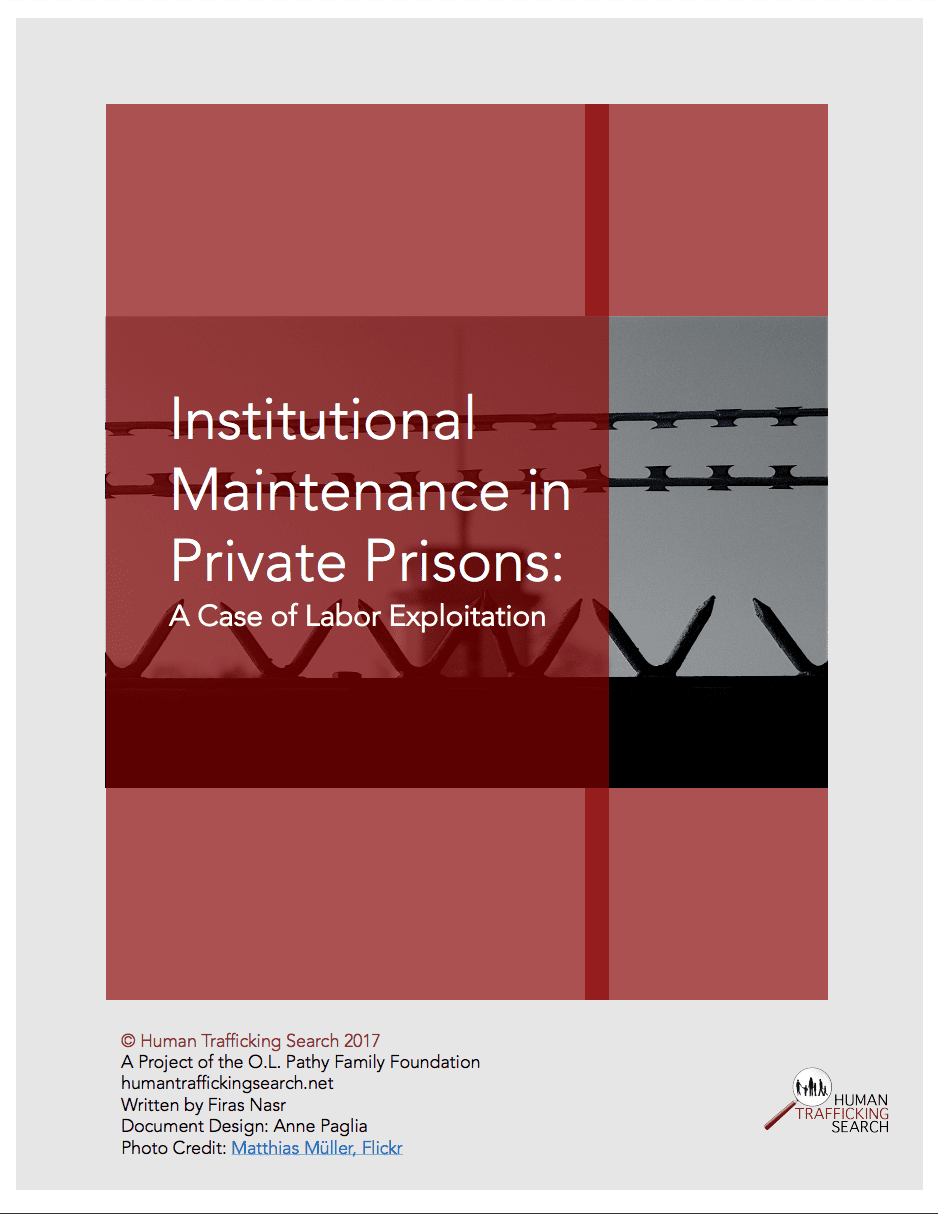
Labor Exploitation in Private Prisons: A Blog Series
Despite having five percent of the world’s population, the United States holds 25 percent of the world’s prisoners and has the highest incarceration rate in the world. On the national level, the Federal Bureau of Prisons (FBOP) began contracting with private prisons in 1997 to deal with issues of overcrowding and increasing incarceration rates. Today, the FBOP has contracts with eleven privately operated facilities across the country, run by three corporations: CoreCivic (formerly the Corrections Corporation of America – CCA), Geo Group Inc., and Management and Training Corporation.
Unlike the public prison system, private prisons operate as a for-profit business and increase profits by cutting the cost of prisoner accommodation. Private prisons argue that they “save taxpayers an average of five to 15 percent of costs [on prisons].” However, numerous studies yield the opposite result, and journalistic accounts as well as federal audits indicate that private prisons provide poorer quality services.
Across the country, including in private prisons, inmates are required to work if they are physically able. Most perform institutional maintenance, such as food service, groundskeeping, housekeeping, and administrative services, all of which contribute to the day-to-day operation of the institution. However, despite working at least seven hours a day and working jobs that would otherwise be paid minimum wage outside of prison, inmates are paid between $0.12-0.40 per hour in order to fulfill these duties.
Given the profit-bearing nature of private prisons, this form of labor in those facilities is especially problematic. In any other corporation, individuals who maintain the daily operation of the corporation’s facility would be required by law to be paid minimum wage for their work. However, somehow private prisons have become an exception to the rule.
Human Trafficking Search recently published a study which examines the use of labor in private prisons, finding that private prisons are not required to pay inmates a fair wage for the work they do, despite being able to make a profit. The study examines the FBOP’s requirements for private prisons regarding work programs for inmates and payment for work. Given that private prisons pay inmates less than minimum wage for labor that allows corporations to make a profit, private prisons are effectively exploiting inmates.
In addition, the study finds that the required working conditions outlined by the FBOP for private prisons violate international labor standards. In the case where an inmate refuses to work a job, they may face disciplinary action. Journalist accounts have documented this in local facilities, indicating that inmates face considerable repercussions for rejecting a job assignment, including jobs that may be dangerous to them. Whether or not this is occurring in private prisons is unclear, but the fact that it is possible is alarming.
Visit us next week for part 2 of the blog series on labor exploitation in private prisons. Click here to read our study.
